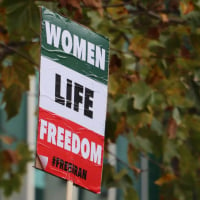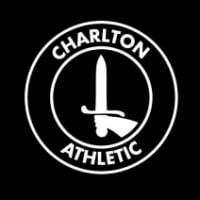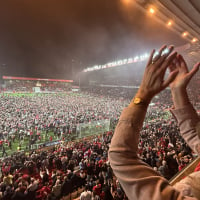Attention: Please take a moment to consider our terms and conditions before posting.
Fabrice Muamba | Suspected Heart Attack on Pitch
Comments
-
http://www.bendanielsmemorialfund.co.uk/
I also play football where Ben died. We always played a little later than them but when we saw all the commotion we thought it must have been a bad tackle, i remember finding out he passed away and it hit us all hard.
By a sad coincidence the day before Fabrice Muamba collapsed at White Hart Lane the Ben Daniels Memorial Fund was launched.
Ben was a very active 15 year old cricketer and footballer who collapsed during football training. Despite the best efforts of the medical professionals Ben died three day later.
Ben's name was one of those displayed on the big screen during the minutes applause v Stevanage.
Please take the time to read about the memorial fund and the work of CRY (Cardiac Risk in the Young) who to work with cardiologists and family doctors to promote and protect the cardiac health of our young by establishing good practice and screening facilities devoted to significantly reduce the frequency of young sudden cardiac death throughout the UK.
Hope that Fabrice pulls through and returns to full health.
I keep on thinking about Muamba and what happened. I hope he pulls through and gets to see how much the football family was urging him to keep fighting and wish him all the best. Incredibly sad.0 -
Statement from LCH saying his heart is beating without medication and without machine help, small signs of improvement, including movement in his arms and legs0
-
Encouraging news.0
-
Suggests his brain is working enough to operate his body (according to Lady Irving) so good news. Fingers crossed there is no brain damage.
0 -
Moving arms and legs!! COME ON SON!!!!!!!!!!!!!!!0
-
Now talking.0
-
Now talking.
Great news.
Would love to see him playing very soon0 -
Sadly, I would be very, very, very surprised if he ever plays again.Now talking.
Great news.
Would love to see him playing very soon
0 -
That is amazing come on fabrice fella you will be amazed at how many people genuinely want you to pull through , I think all football fans regardless of their teams result on Saturday realised that it is only a game0
-
Things are looking a lot better, still a long way to go. Good luck.
0 -
Sponsored links:
-
Would be gutted if he didn't but him living is priority followed by the football.
Sadly, I would be very, very, very surprised if he ever plays again.Now talking.
Great news.
Would love to see him playing very soon
0 -
Apperently he's now talking according to Associated Press.0
-
He's got past the first 24 hours and they're obviously lightening the sedation, all very encouraging. Like Sir Henry, I'm also crossing fingers that there isn't any brain damage.0
-
This whole incident has bought the footballing world together !
Which is great to see!
I must admit when i saw it live on saturday night, i feared the worse for the lad,
But i am so pleased to be proven wrong .
And he is known taking little progress step by step.
My mate witnessed someone on he's own team die in a local cup final a couple years back for old town boys which is a local club in Brighton. He still gets flashbacks now !
Was physiclly sick when i saw it live !
And have been checking for updates every hour ! ,
So pleased, but i know there is a long way to go
Ps fair play to real madrid and there message to muamba .0 -
I am glad he is improving, missed the match live but I stupidly watched it on you tube too, just to see how the crown and ESPN handled it. I was in tears at the end of it. Still praying for him.0
-
Seemingly his heart stopped for 78 minutes - and we thought my sister-in-law made a miraculous recovery when hers stopped for around 11 minutes! I'm an atheist, but maybe all those prayers have worked. Let's hope he can make a full recovery.0
-
They "shocked" him 15 times before even reaching the hospital and nothing changed. Totally stunned he wasnt declared dead (or he may have been) and they kept going for that long.
Would be good to hear @Medders take on it - what is the procedure/how long do you wait etc. with somebody who has no sign of life at all?
Great outcome though it seems.0 -
Because Fabrice received CPR almost immediately, hopefully his brain did not get significantly starved of oxygen. His heart may have stopped, but the CPR administered to Fabrice replaced his heart's function. He thus would have had brain activity and therefore did not 'die'. It's not a god wot done it but the skills of paramedics, defibrillators, cardiologists and the NHS. Like everyone else, I'm hoping that he goes to make a good recovery.0
-
http://epetitions.direct.gov.uk/petitions/31819
Please sign this petition to encourage the government to change their policy on cardiac screening in young people0 -
Sponsored links:
-
Is this for a screening to be offered if you had concerns or generally every baby have one when they are born?0
-
I think the idea is to have general screening available.
For example, my son's school, where a friend of ours died aged 15 last year of an heart condition, will now be offering screening to all pupils in sports teams and from year 10 upwards.0 -
Been discharged today.
 0
0 -
Wonderful.0
-
Lads a fighter thats for sure. Well done to the hospital staff as well.
Cracking news.0 -
Brilliant news.0
-
Great news ..... so pleased for him and his family.0
-
They "shocked" him 15 times before even reaching the hospital and nothing changed. Totally stunned he wasnt declared dead (or he may have been) and they kept going for that long.
Sorry mate, only just seen this - don't get on here very often any more.
Would be good to hear @Medders take on it - what is the procedure/how long do you wait etc. with somebody who has no sign of life at all?
Great outcome though it seems.
Great outcome indeed. He's very lucky in that, outside of a hospital, he probably had the cardiac arrest in the best possible place. We look at the 'Chain of Survival' - how quickly the components of this are put into place have a huge impact on the individuals chance of survival.
- early access. Responders were next to him within what, 30 seconds? Cardiac arrest would have been recognised almost immediately.
- early CPR. Would have been commenced immediately
- early defibrillation. A defibrillator with persons trained to use it would have been at his side within minutes of the arrest. You may of noticed there's always an ambulance crew at every home game of ours.
- early advanced care. As above, ambulance stands by outside the ground at every game. He was taken straight to the London Chest hospital, specialists in cardiology.
For the ambulance being there, we have Chelsea and a certain Mr Mourinho to thank guardian.co.uk/football/2012/mar/18/fabrice-muamba-medical-rules
Obviously I wasn't there Glenn so can't say exactly what happened during the time he was being attended to. However, the fact that they shocked him multiple times indicates that his heart didn't stop as such but was in a shockable rhythm, most likely ventricular fibrillation (VF) where the heart essentially quivers at a rate that won't sustain life. So it's still beating but needs shocking back into a normal sinus rhythm. We are unable to shock a heart that has stopped completely
Our procedure is 2 mins of chest compressions, analyse the rhythm. If shockable, give one shock, back to compressions. If not shockable, continue compressions. Adrenaline is given at periods during these cycles and a drug called amiodarone is given once if the rhythm continues to be VF. This cycle continues until either the heart starts beating in a normal rhythm again or it's stopped beating completely for at least 20 minutes (excluding children and certain situations such as drowning, maternity). The reason resuscitation continued is because he never reached that 20 minute time period.
Sadly, as footballers (and other professional sportspersons) training becomes more and more intense and their fitness taken to higher levels than ever before, I think this is something that is going to happen often. Due to the training, the heart becomes enlarged - hypertrophic cardiomyopathy. Here's the link if you're interested in looking into it any further ncbi.nlm.nih.gov/pubmedhealth/PMH0001243/
Hope that all makes sense, I'm not the best explainer in the world!
0 -
American and with annoying music but this video shows a VF arrest and the work done. ROSC they mention is return of spontaneous circulation, i.e. a heart that's beating appropriately by itself
https://fbcdn-video-a.akamaihd.net/cfs-ak-ash4/v/433256/412/409881109036681_40986.mp4?oh=f3fd1ea64723f82a9d76fde3b50a33c3&oe=4F955E20&__gda__=1335189024_2f15386854d8e38ee8af9ece25d4d97e0 -
Just went on to the Reebok pitch, great to see him fit and well.0


















